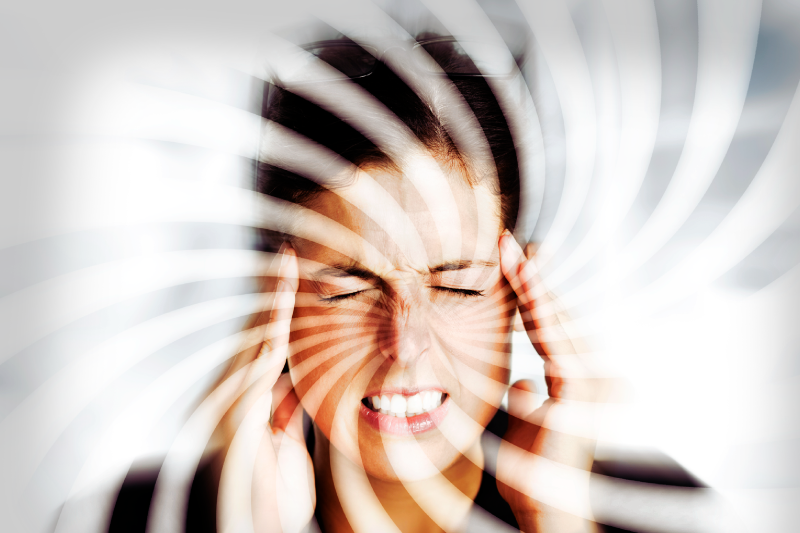What Are the Causes of Vertigo By Pierre Mouchette | Bits-n-Pieces Vertigo is the feeling that the room or world is spinning around you. Most of us have experienced it at some point in our lives. It is the same sensation you get after twirling or spinning around in an office swivel chair. In those scenarios, we know the feeling will pass once we regain balance. But some people experience vertigo out of the blue. And, what’s worse, it doesn’t go away so quickly.
Several different things can cause vertigo. Most often, it is caused by a condition affecting a part of the ear that helps with balance and does not come with serious health risks. But sometimes vertigo can be caused by something in the brain, which can be more serious. Are there different types of vertigo? There are two main types of vertigo: Peripheral (coming from the ear) Peripheral vertigo is more common. It happens when something is off in the inner ear, which comprises different components that help you feel steady and balanced. The inner ear contains special fluids and crystals that help the brain understand when your body is moving. Changes in body position are then communicated to the brain through a particular nerve called the vestibular nerve. This nerve connection helps us maintain our balance. Central (coming from the brain) Central vertigo is less common than peripheral vertigo. It happens when there is a problem with the brain. It could be an issue with the part of the brain at the back of your head, known as the cerebellum. The cerebellum has many essential functions, one of which is maintaining balance. Or it could be an issue with the brain stem, which helps with balance. Central vertigo develops if either or both of these areas are affected. What causes vertigo? Different underlying diagnoses cause peripheral and central vertigo. The most common causes of peripheral vertigo are: Acoustic neuroma - or vestibular schwannoma, is a benign (harmless) tumor that grows slowly on the vestibular nerve. Benign paroxysmal positional vertigo (BPPV) - is when the crystals in your inner ear move into a position that disrupts the fluid that helps with balance. It sends a confusing message to the brain, making it harder for the brain to know your body’s position. BPPV is the most common cause of peripheral vertigo. Cholesteatoma – abnormal growth of skin behind the eardrum. Some people have a cholesteatoma when they are born, while others develop one after multiple ear infections. Labyrinthitis - also called vestibular neuritis, is an inner ear inflammation usually triggered by a virus, like the one that can cause the common cold. Ménière’s disease - is when a build-up of fluid in the inner ear interferes with the brain’s ability to interpret if the body is moving. This condition also affects a person’s hearing. Central vertigo is much less common than peripheral vertigo. Some causes of central vertigo include: Brain tumor - while possible, this is a very uncommon cause of vertigo. Head trauma - just like a stroke, bleeding inside the brain can cause vertigo, depending on where the injury is. Migraine headache - most people are familiar with the way migraines cause a throbbing headache, sensitivity to light, and nausea. But some people get vertigo symptoms with their migraine, too. Multiple sclerosis - is an autoimmune disease involving the body attacking the nerves in the brain and spinal cord. More common symptoms of multiple sclerosis are weakness, difficulty walking, and vision changes. Stroke - vertigo is not a common symptom of a stroke. But vertigo can be a symptom of a stroke affecting the cerebellum or brain stem blood vessels. Do symptoms differ depending on the type of vertigo? The symptoms of vertigo can vary from person to person, but peripheral and central vertigo can feel very similar. So you cannot always tell what is causing vertigo based on symptoms alone. But some clues can help. Many times, the causes of peripheral vertigo can also lead to:
The causes of central vertigo can also cause all of the above symptoms. But central vertigo lasts longer than peripheral vertigo, which can disappear after a few seconds or hours. Even though the causes of central vertigo are more serious, vertigo often feels less severe than peripheral vertigo. Causes of central vertigo are also less likely to lead to a feeling of fullness or ringing in the ear. In addition to the above symptoms, people with central vertigo may experience:
When to see a provider Many people with conditions that cause vertigo, like BPPV or Ménière’s, are familiar with vertigo attacks and how to recover from them. But if you are experiencing your first episodes of vertigo, symptoms can feel severe and alarming. And it is natural to wonder if you should seek emergency medical care rather than wait for a scheduled appointment with your provider. You should seek emergency evaluation if you are experiencing any of these symptoms along with vertigo:
Age - as you age, your risk increases for conditions that can cause central vertigo, like stroke. So if you are 60 or older and experiencing vertigo for the first time, it is best to be evaluated to figure out what is causing it. Blood-thinning medications - these medications increase the likelihood of brain bleeding. Higher risk of a stroke - some conditions that increase your risk of stroke are high blood pressure, high cholesterol, diabetes, and atrial fibrillation. Recent head trauma - this also increases the possibility that there is bleeding in the brain.
0 Comments
Your comment will be posted after it is approved.
Leave a Reply. |
Archives
May 2024
|
